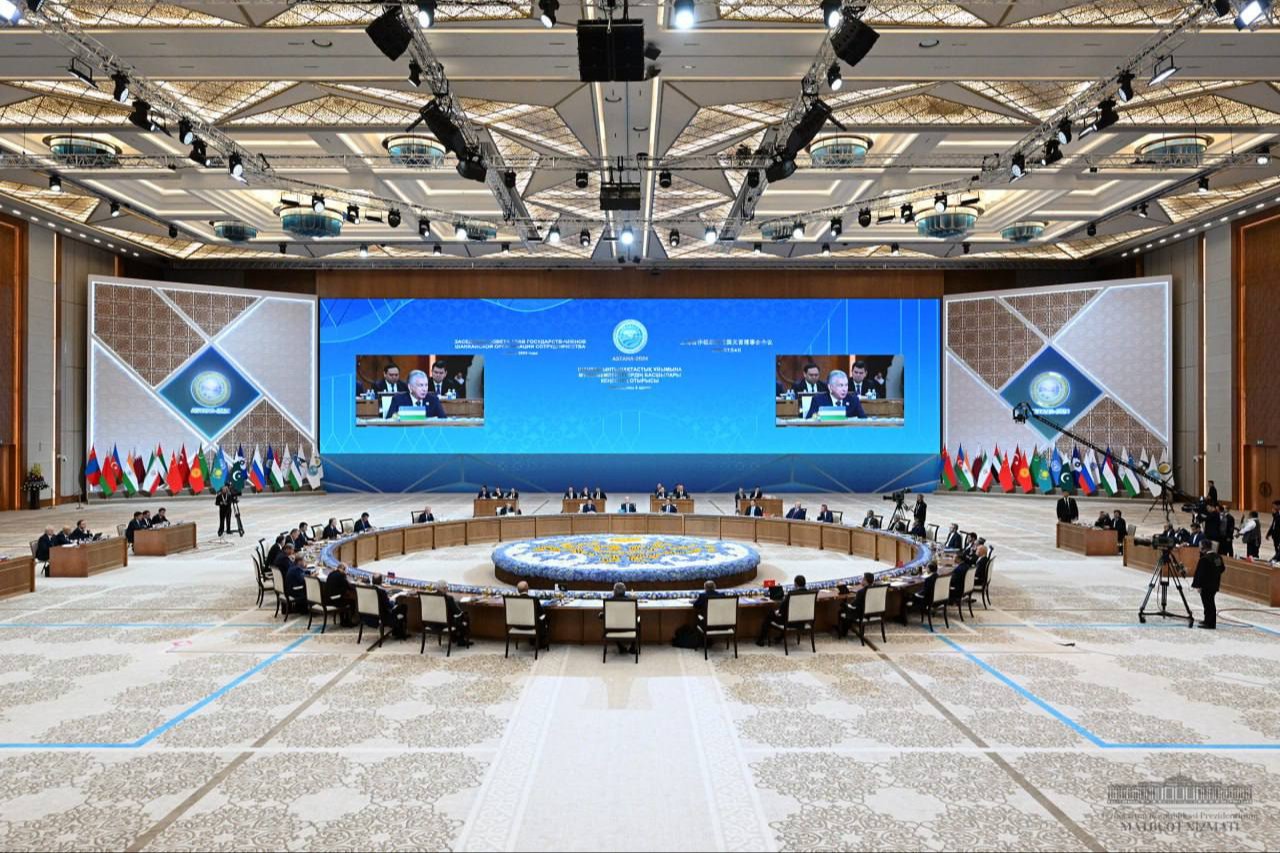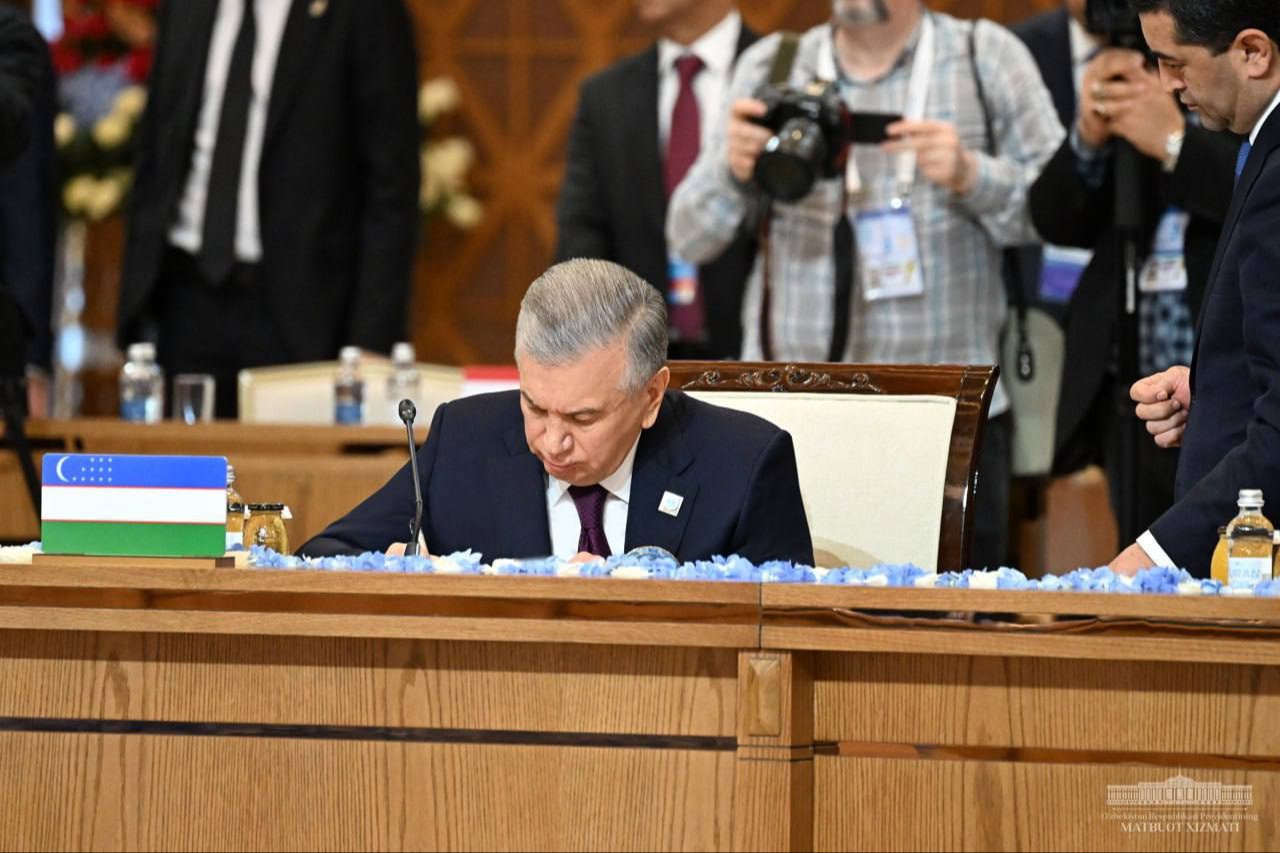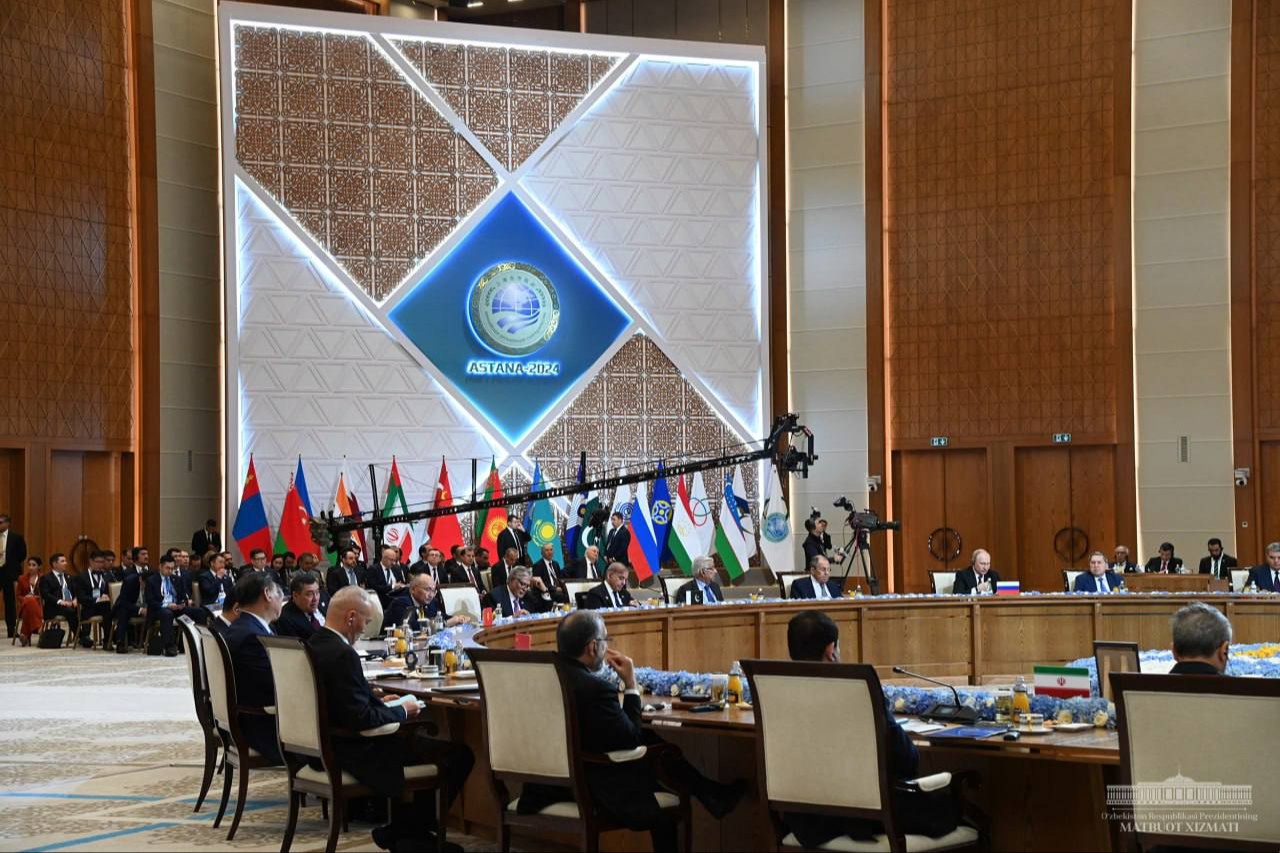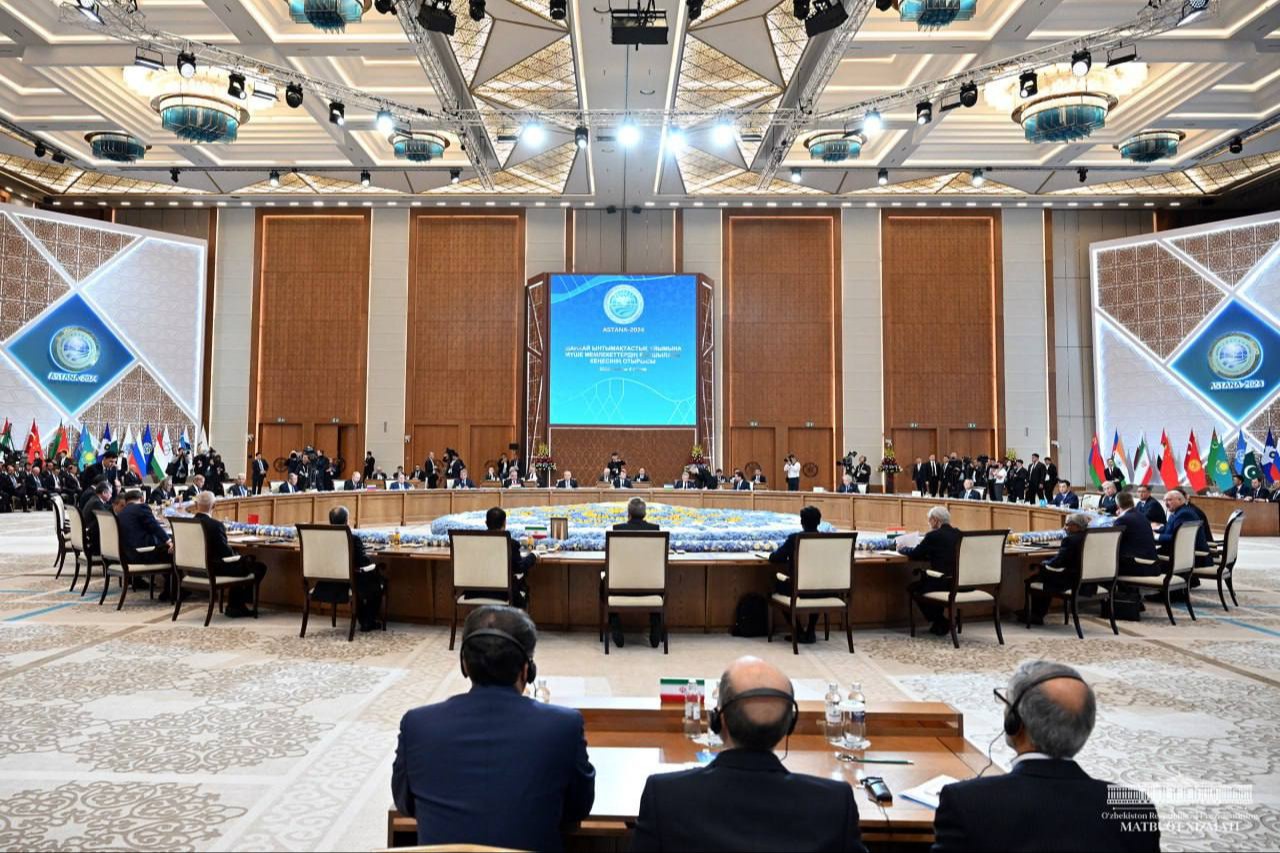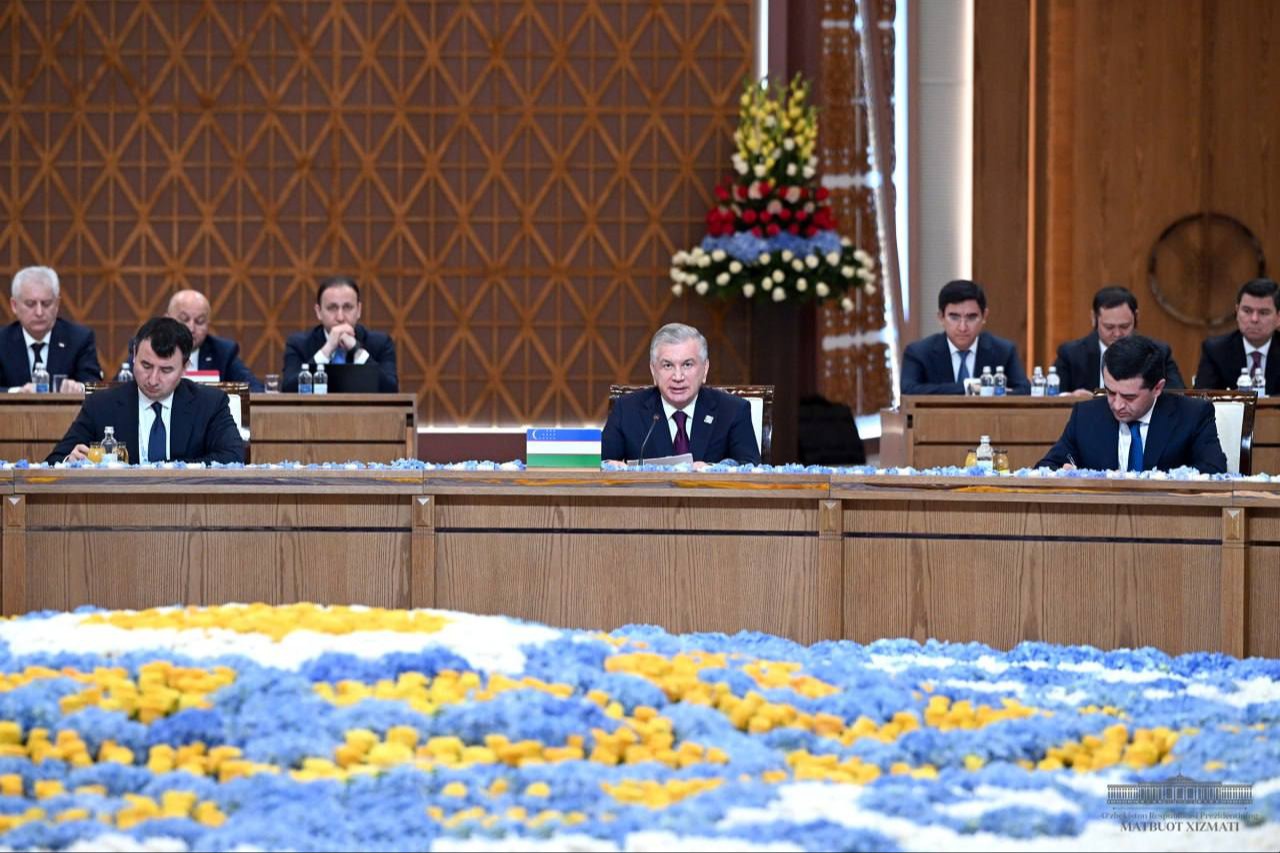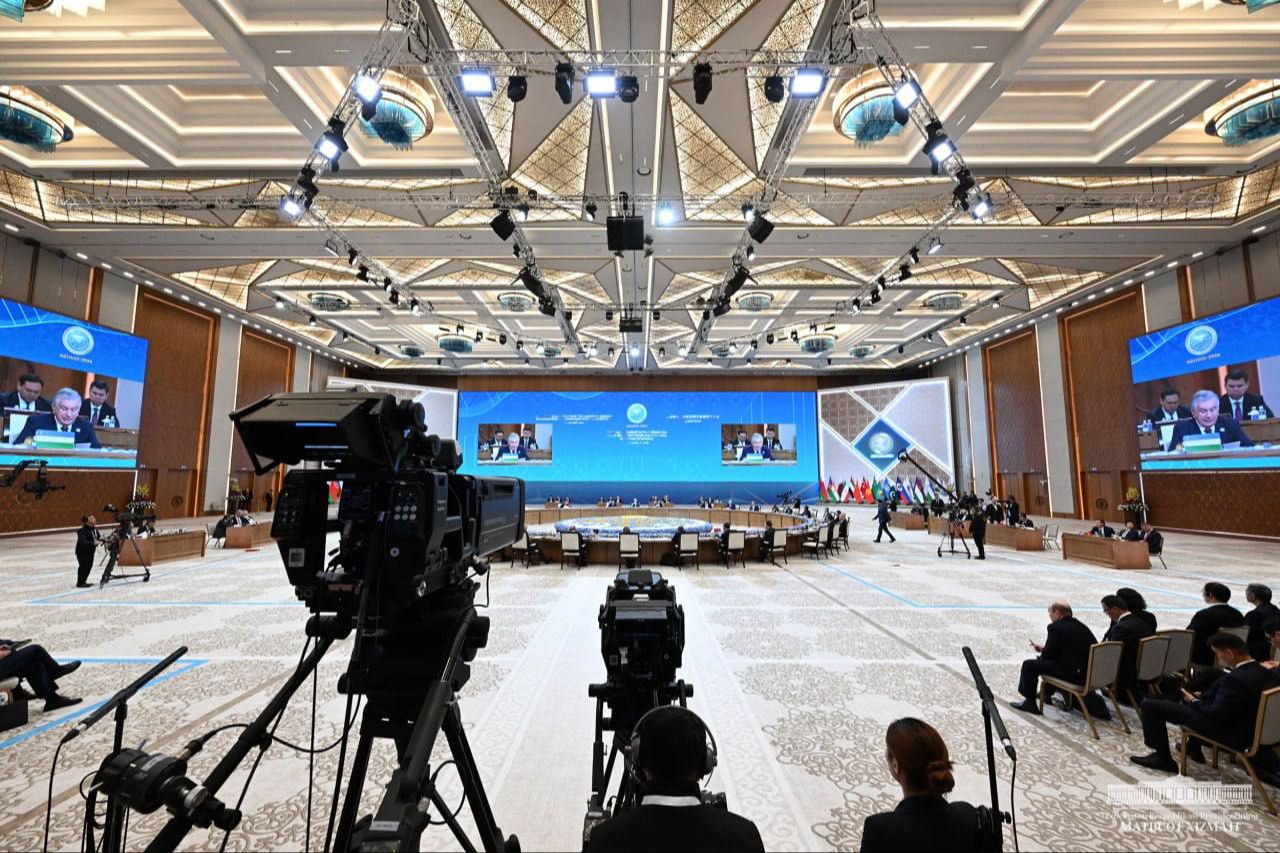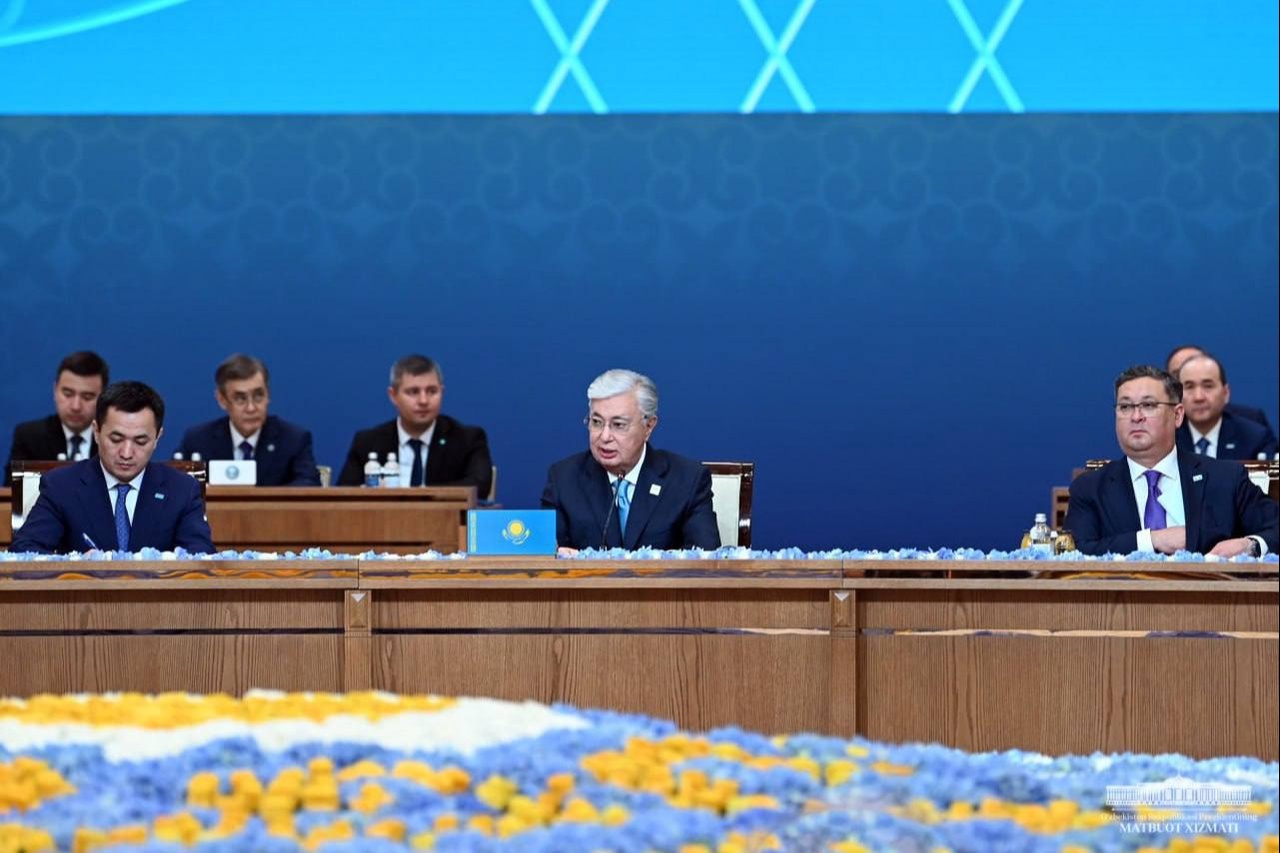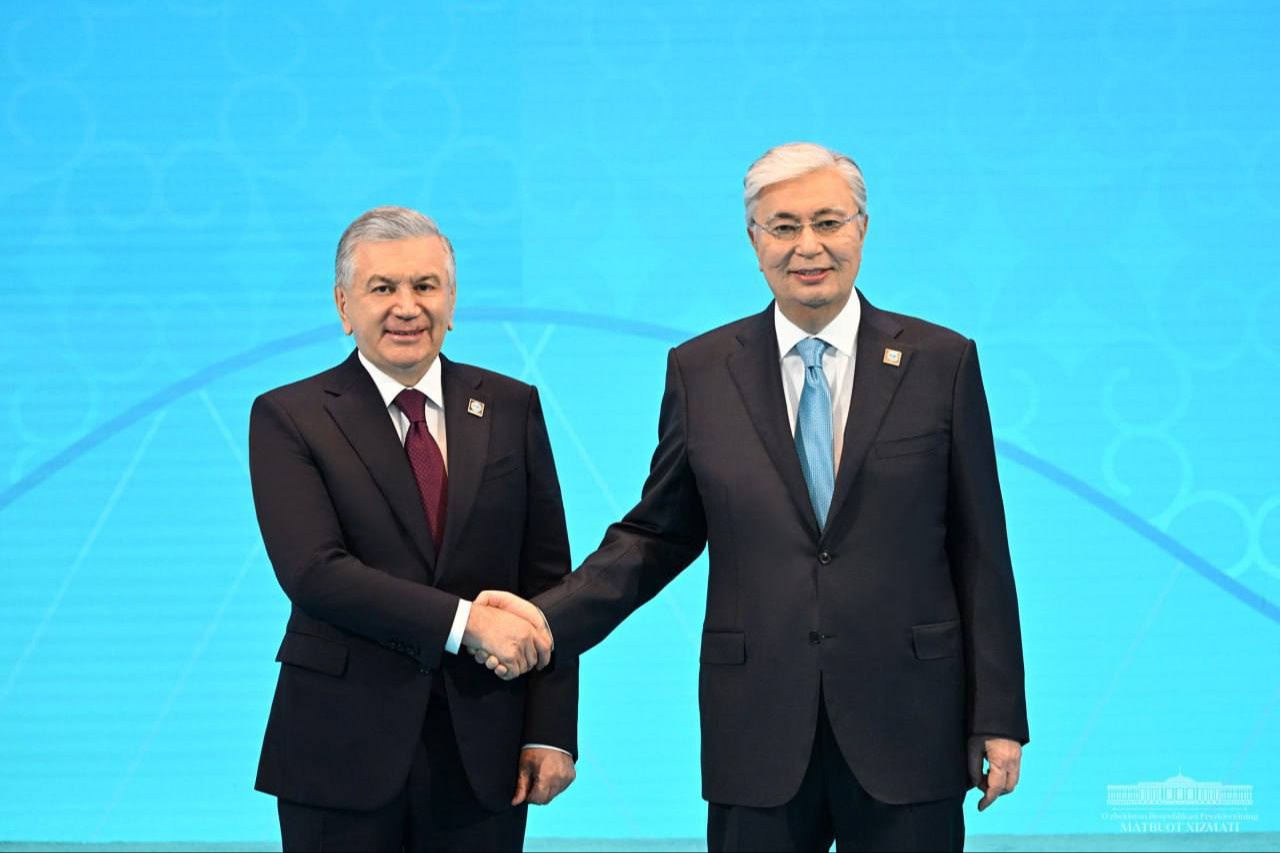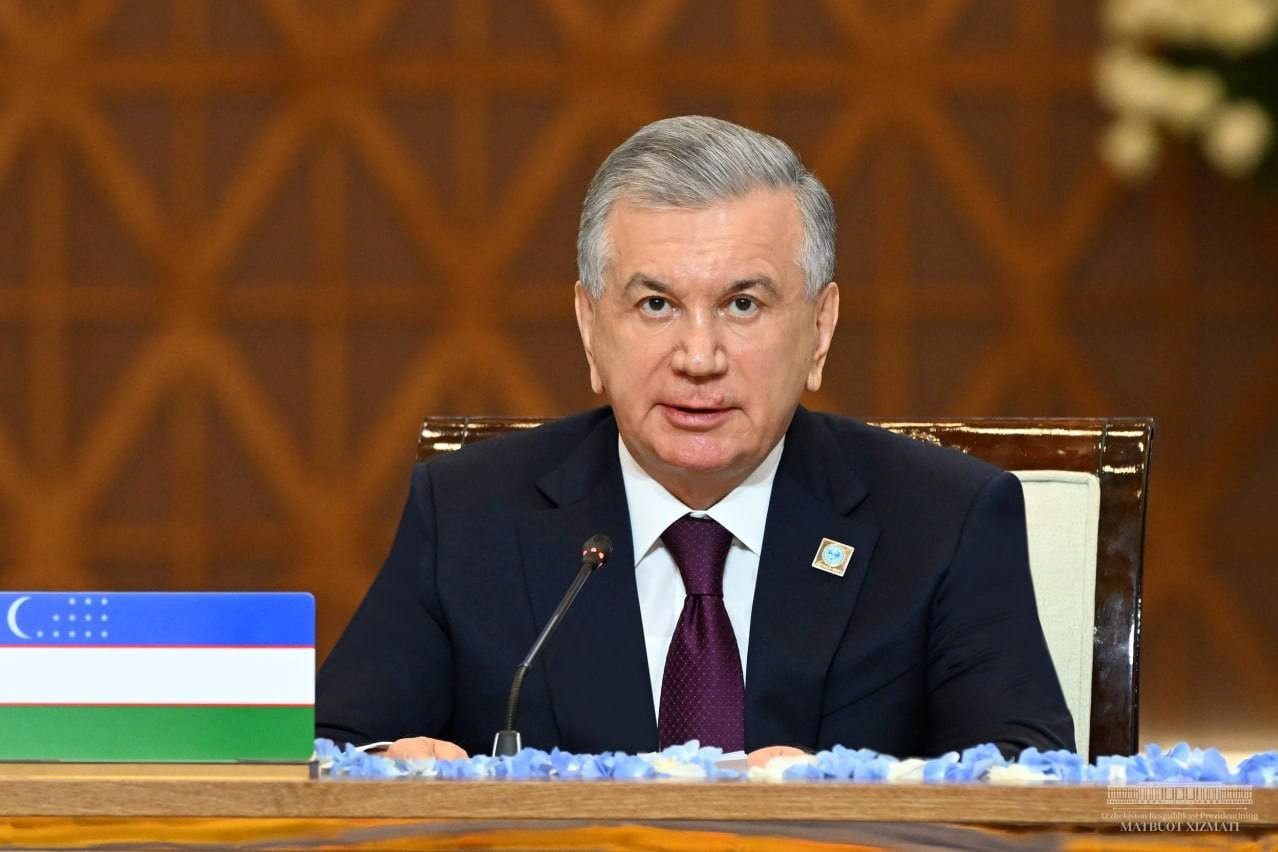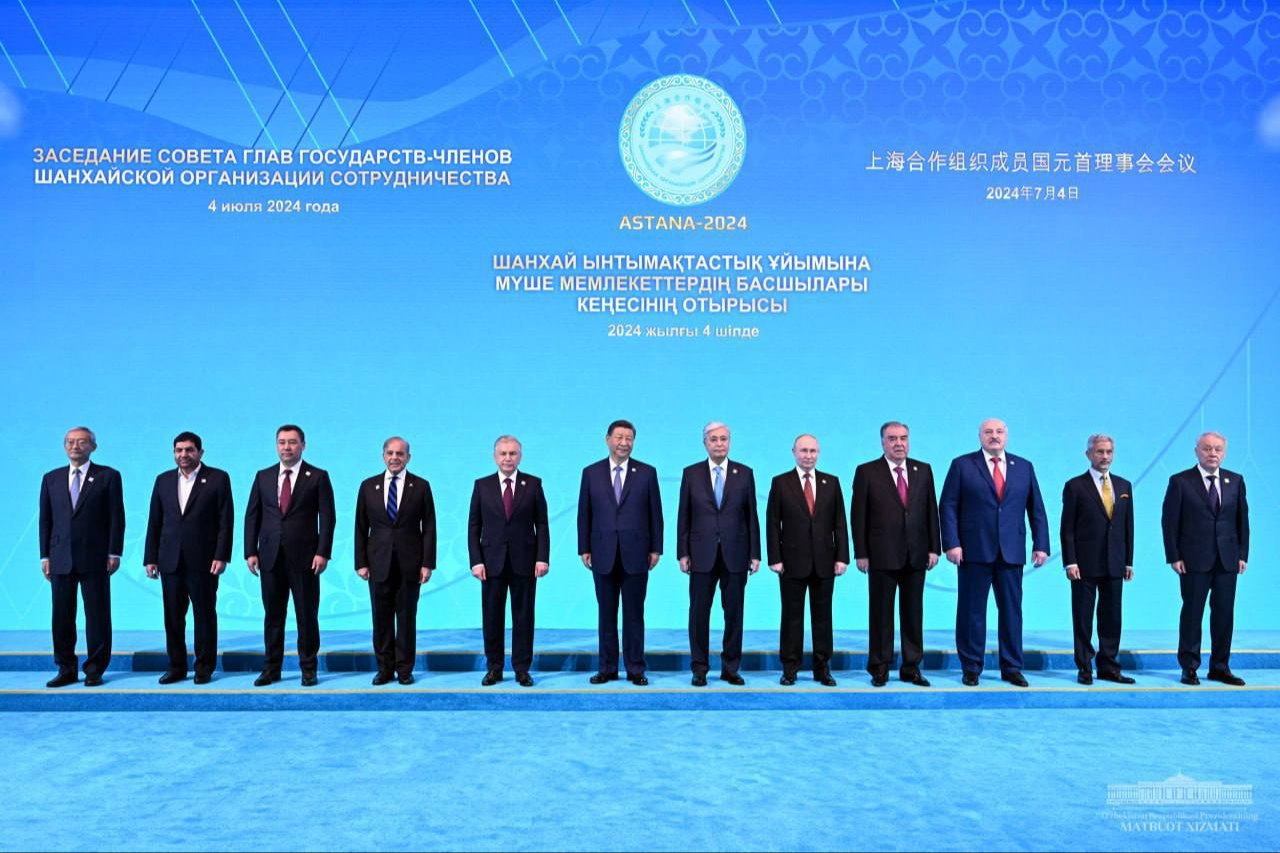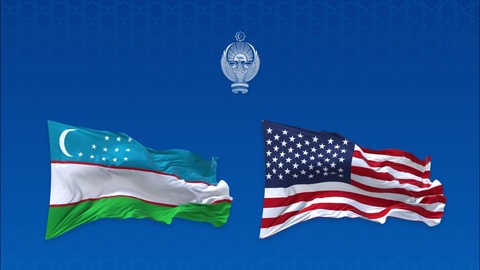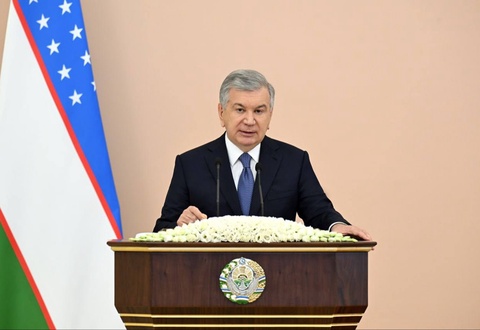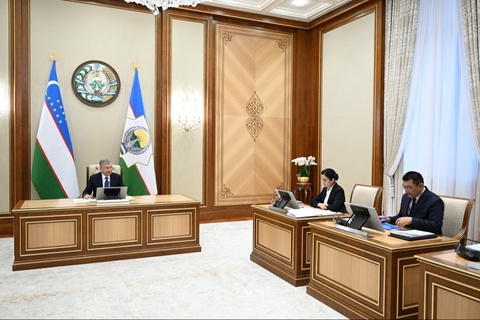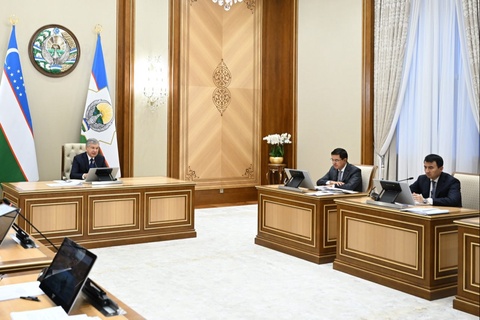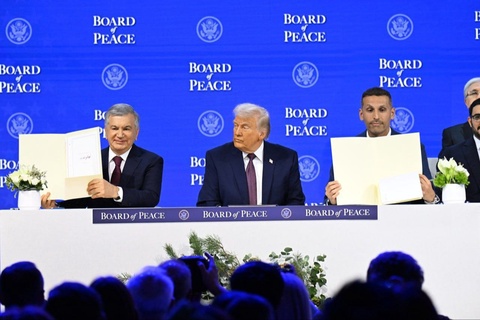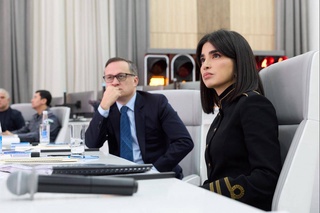The event, chaired by the President of the Republic of Kazakhstan Kassym-Jomart Tokayev, was also attended by the President of the Republic of Belarus Alexander Lukashenko, the Acting President of the Islamic Republic of Iran Mohammad Mokhber, the President of the People’s Republic of China Xi Jinping, the President of the Kyrgyz Republic Sadyr Zhaparov, the Prime Minister of the Islamic Republic of Pakistan Shehbaz Sharif, the President of the Russian Federation Vladimir Putin, the President of the Republic of Tajikistan Emomali Rahmon, the Minister of External Affairs of the Republic of India Subrahmanyam Jaishankar, as well as Secretary-General of the Shanghai Cooperation Organization Zhang Ming and the Director of the Executive Committee of the Regional Anti-Terrorist Structure of the SCO Ruslan Mirzayev.
According to the agenda, an open exchange of views took place on current regional and international issues, and prospects for further enhancing multifaceted cooperation within the SCO were discussed.
Welcoming the summit participants, the President of Uzbekistan highly appreciated the fruitful outcomes of Kazakhstan’s active chairmanship in the Shanghai Cooperation Organization and sincerely congratulated Belarus on accession to the SCO.
The Leader of Uzbekistan emphasized that this summit is taking place at a time of escalating international situation.
New destructive conflicts are emerging, and the challenges and threats to global and regional security are intensifying. This is happening against the backdrop of declining mutual trust between states, increased confrontation and rivalry, and, consequently, increased geopolitical tension.
“In such challenging conditions, it is vital to maintain and further strengthen our commitment to the basic principles of the SCO, which have ensured the Organization’s current success, high international profile, and stabilizing role in international affairs”, Shavkat Mirziyoyev noted.
In this context, he called for continued strict adherence to the fundamental principles of the “Shanghai Spirit” – mutual trust and mutual benefit, equality, respect for cultural diversity, upholding the principle of consensus in decision-making, and the non-aligned status of the Organization.
As the President of Uzbekistan noted, in today’s realities, it is crucial to ensure that the unity of the SCO is not undermined. “We must further strengthen the cohesion of the “SCO family”, seize emerging opportunities, and consistently implement the principle of joint development” he stated.
It was emphasized that realizing this colossal potential requires us to create a new economic partnership model and develop a long-term sustainable development agenda within the SCO framework.
Speaking about the SCO’s most pressing tasks, the Head of Uzbekistan drew attention to the following.
In the face of an unprecedented global trust deficit, there is an increasing need to find new approaches to ensuring our common security.
In this context, the relevance of implementing the Samarkand Solidarity Initiative for Common Security and Prosperity, which the Uzbek side proposed, was noted.
The President of Uzbekistan called for adopting the SCO Code of Good Neighborliness, Trust, and Cross-Border Partnership to strengthen dialogue and further deepen multilateral cooperation.
To achieve a strategic breakthrough in the economic dimension, it was proposed to develop an Agreement on Trade Facilitation Procedures within the SCO and a Cooperation Program in this area, integrating existing digital trade platforms.
A comprehensive set of measures to stimulate mutual investments, primarily in infrastructure, high-tech industries, and the service sectors, was proposed to support industrial cooperation programs.
In this context, the importance of creating financial support mechanisms for such projects and revisiting the creation of the SCO Development Fund and the SCO Development Bank was noted.
The Leader of Uzbekistan drew attention to the need to form an inclusive transportation system along the “East-West” and “North-South” lines, which will serve to effectively develop SCO countries’ economic potential.
“I emphasize that the diversification of transport corridors is a crucial condition for the sustainable development of our entire region”, the President said.
The Leader of Uzbekistan also proposed developing a plan to digitalize logistics procedures, including organizing electronic data exchange for goods crossing our borders.
It was proposed to develop a Comprehensive Cooperation Plan to Facilitate Investments and Technology in Renewable Energy to expand the state-of-art and reliable energy infrastructure across the SCO space.
Shavkat Mirziyoyev emphasized that transitioning to a digital economy, implementing artificial intelligence, and adopting advanced IT solutions are crucial for our countries’ competitiveness.
He advocated for the development of the “Future Technologies of the SCO” Program to exchange knowledge, experiences, and best practices and develop systemic IT park interactions.
The President of Uzbekistan proposed adopting a ‘Roadmap’ for SCO countries’ cooperation in social development and protection.
It was emphasized that implementing specific tasks to improve living standards and develop territories, mainly rural areas, will contribute to achieving the goals of the Agenda 2030.
To ensure food security, a joint electronic platform, “SCO Food Security Atlas”, has been initiated. This platform will consolidate data on the agro-industrial potential of the organization’s countries in terms of produced goods and supply capabilities. Experts from the UN Food and Agriculture Organization were proposed to be involved in this work.
Regarding regional security issues, the President of Uzbekistan noted the need to continue closely coordinating the work of the competent authorities of SCO countries in combating modern challenges and security threats, including through the SCO Regional Anti-Terrorist Structure.
The Leader of Uzbekistan addressed the situation in neighboring Afghanistan, being an integral part of Central Asia and a crucial factor in ensuring regional stability.
Noting the differences in approaches to building relations with the current Afghan authorities, he called for maintaining dialogue with Kabul in the interests of the security and economic development of the entire region.
In this regard, the proposal to resume the work of the SCO-Afghanistan Contact Group remains relevant.
In conclusion, the Leader of Uzbekistan congratulated the President of China on the assumption of the chairmanship of the Shanghai Cooperation Organization.
Following the meeting, a document signing ceremony took place. The Astana Declaration and a package of important multilateral documents were adopted to strengthen the partnership in various areas of interaction.
At the initiative of the President of the Republic of Uzbekistan Shavkat Mirziyoyev, the heads of state of the SCO approved the Interaction Plan of the organization’s member states on ensuring international information security and the Statement of the Council of Heads of State on the principles of good neighborliness, trust and partnership.


